#power bank outlet
Video
youtube
The Benefits of Using a Dual-USB Charging Power Bank with AC Outlet Charger
Are you tired of constantly running out of battery on your mobile phone when you're on the go? If so, a dual-USB charging power bank with an AC outlet charger could be the solution you've been looking for. This handy device is made of durable ABS and PC materials, ensuring it can withstand everyday wear and tear. With a cell type ranging from 100000mAh to 200000mAh, you can rest assured that you'll have more than enough power to keep your devices charged throughout the day.
## High-Speed Charging for Multiple Devices Simultaneously
One of the standout features of this dual USB charging power bank is its super quick charge capability of 22.5W. This means you can enjoy high-speed charging for your mobile phone, tablet, or other devices without any lag time. What's more, the power bank is equipped with both Micro-USB and Type-C input interfaces, as well as USB/DC and double USB output interfaces, making it incredibly versatile for charging a wide range of devices.
## 18W PD Quick Charge for Efficient Power Delivery
In addition to the 22.5W super quick charge, this power bank also boasts 18W PD quick charge technology. This means you can efficiently charge up to three devices at the same time, ensuring you never have to worry about running out of battery when you need it most. Whether you're traveling, working, or simply on the go, this power bank has got you covered.
## Portable and Convenient Design
Despite its powerful charging capabilities, this dual USB charging power bank is surprisingly compact and portable. With its sleek design and lightweight construction, you can easily slip it into your bag or pocket and take it with you wherever you go. The built-in AC outlet charger also allows you to plug in your devices directly, eliminating the need for bulky adapters or extra cords.
## Conclusion
In conclusion, a dual USB charging power bank with an AC outlet charger is a must-have accessory for anyone who relies on their mobile devices throughout the day. With its high-speed charging capabilities, efficient power delivery, and portable design, this power bank offers the perfect solution for keeping your devices charged and ready to go at all times. Don't let a dead battery slow you down - invest in a dual USB charging power bank today and stay connected no matter where life takes you.
#youtube#Power bank usb-c#Power bank mophie#Power bank usb#Power bank camping#Power bank Walmart#Power bank at Walmart#Power bank for camping#Power bank Magsafe#Power bank Amazon#Power bank with ac outlet#Power bank ac outlet#Power bank best buy#Power bank with wireless charging#Power bank outlet#Power bank 50000mah#Power bank small#Power bank wireless charger#battery for Power bank
2 notes
·
View notes
Text
i almost cried
#ʕ •ᴥ•ʔ idle chit chat#bc my phone wasnt charging earlier and i didnt know tf why#n im the only one in my house w an apple phone#so i cant borrow anybody elses chargers to make sure#n i tried on different outlets n still wouldnt work#IDK WHY MY BRAIN JUST WENT 'oh god my phone had enough of gnshin and now its giving up on me o god ill cry'#INSTEAD OF 'oh the charger is the problem'#MOTHERFUCKER@()*&(#got me busting out my power bank shake my head
2 notes
·
View notes
Text
yo. absolutely killed it at a local restaurant's trivia night tonight; the theme was Spongebob Squarepants & I basically swept the floor one-man army style 😂😂 got us a perfect score the first game & only missed 1.5 questions the second game (😩😤) but still won them both overall & earned our group $40 off our meal in prize monies. feeling pretty alpha rn ngl 😆😆😆
#dude that One question I missed is gonna haunt me forever xD#I completely forgot that there was a specific Number of swear words in the Sailor Mouth episode hdjdbsjs#but augh I felt so powerful xD FINALLY a useful outlet for my stupid brain to flex my bloated memory banks#of stupid childhood tv show quotes & factoids hdjshsns x'3c#feels good feels organic and I bought us all ice cream afterwards to celebrate xD#and now. I must sleeb 😴😴🧽✨️#shut up Wisp
1 note
·
View note
Text
Portable Power Bank with AC Outlet 65W Review
Are you a camping enthusiast, someone who loves the thrill of the open road in an RV, or perhaps you just like having that extra bit of assurance that you won’t run out of power during a trip? If your answer is yes, the “Portable Power Bank with AC Outlet 65W 110V External Battery Pack, 24000mAh Portable Laptop Charger with 30W Foldable Solar Panel Power Supply for Outdoor Camping Home Use…
0 notes
Text
the neil gaiman sa allegations are wild because i’m sitting here like wow neil gaiman had an incredibly intense impact on me in a variety of ways for at least the better part of a decade like at the very least most of my friends i made directly or indirectly with my connection with gomens and i think it’s fair to say that if anyone has made gomens a personality trait it’s me. and i saw that five separate women (so far) came forward saying at the very least he’s a fucking creep who preys upon women who he holds power over so i went wow that’s disgusting i don’t think i will be supporting this man financially any longer. at the very least. like i will make a conscious effort to not support. this fucking. predator. and then i go onto the wider internet and people i hold in high regard are like neilman sa allegations? what’s that? news outlets i hold in high regard are like neilman sa allegations? what are those? and i feel like i am actually for real going insane. why are you gaslighting me pretending the author of my favorite book doesn’t have active sa allegations against him. why are you making me, a fan, be the one to get this news out to the best of my ability (which i feel like i have to do, because i’m a fucking gomens blog) even though i’d rather stick a fork in my hand than discuss this topic more than i absolutely have to. okay i know why it’s because neil is tied up financially in a lot of projects and you as people i respect don’t want to get on his bad side so you can continue to make bank. but also. oh my god. someone in the science fiction/fantasy world grow a fucking spine and take a financial hit for your morality and if you believe in that sort of thing eternal soul just once challenge.
#THIS IS SOOOOOO GROSS#i refuse to stop talking about this. i cannot believe there haven’t been more articles. if you know where to look it’s clear as day my jury#is no longer out. for the love of god stop supporting this man.#text#my post#mobi#gaiman mention
756 notes
·
View notes
Text
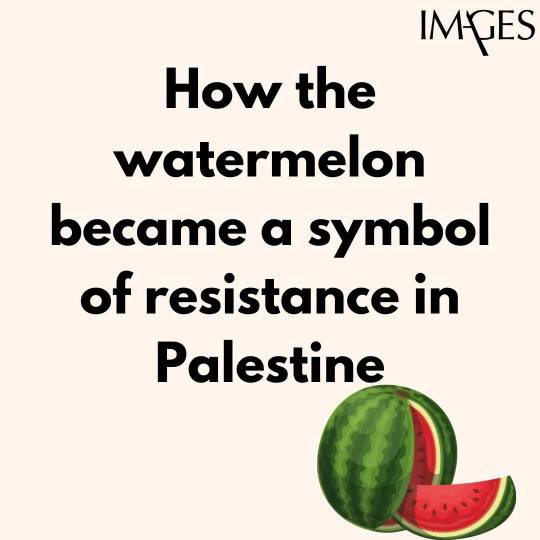


How the Watermelon Became a Symbol of Palestinian Solidarity
The use of the watermelon as a Palestinian symbol is not new. It first emerged after the Six-day War in 1967, when Israel seized control of the West Bank and Gaza, and annexed East Jerusalem. At the time, the Israeli government made public displays of the Palestinian flag a criminal offense in Gaza and the West Bank.
To circumvent the ban, Palestinians began using the watermelon because, when cut open, the fruit bears the national colors of the Palestinian flag—red, black, white, and green.
The Israeli government didn't just crack down on the flag. Artist Sliman Mansour told The National in 2021 that Israeli officials in 1980 shut down an exhibition at 79 Gallery in Ramallah featuring his work and others, including Nabil Anani and Issam Badrl. “They told us that painting the Palestinian flag was forbidden, but also the colors were forbidden. So Issam said, ‘What if I were to make a flower of red, green, black and white?’, to which the officer replied angrily, ‘It will be confiscated. Even if you paint a watermelon, it will be confiscated,’” Mansour told the outlet.
Israel lifted the ban on the Palestinian flag in 1993, as part of the Oslo Accords, which entailed mutual recognition by Israel and the Palestinian Liberation Organization and were the first formal agreements to try to resolve the decades-long Israeli-Palestinian conflict. The flag was accepted as representing the Palestinian Authority, which would administer Gaza and the West Bank.
In the wake of the accords, the New York Times nodded to the role of watermelon as a stand-in symbol during the flag ban. “In the Gaza Strip, where young men were once arrested for carrying sliced watermelons—thus displaying the red, black and green Palestinian colors—soldiers stand by, blasé, as processions march by waving the once-banned flag,” wrote Times journalist John Kifner.
In 2007, just after the Second Intifada, artist Khaled Hourani created The Story of the Watermelon for a book entitled Subjective Atlas of Palestine. In 2013, he isolated one print and named it The Colours of the Palestinian Flag, which has since been seen by people across the globe.
The use of the watermelon as a symbol resurged in 2021, following an Israeli court ruling that Palestinian families based in the Sheikh Jarrah neighborhood in East Jerusalem would be evicted from their homes to make way for settlers.
The watermelon symbol today:
In January, Israel’s National Security Minister Itamar Ben-Gvir gave police the power to confiscate Palestinian flags. This was later followed by a June vote on a bill to ban people from displaying the flag at state-funded institutions, including universities. (The bill passed preliminary approval but the government later collapsed.)
In June, Zazim, an Arab-Israeli community organization, launched a campaign to protest against the ensuing arrests and confiscation of flags. Images of watermelons were plastered on to 16 taxis operating in Tel Aviv, with the accompanying text reading, “This is not a Palestinian flag.”
“Our message to the government is clear: we will always find a way to circumvent any absurd ban and we will not stop fighting for freedom of expression and democracy,” said Zazim director Raluca Ganea.
Amal Saad, a Palestinian from Haifa who worked on the Zazim campaign, told Al-Jazeera they had a clear message: “If you want to stop us, we’ll find another way to express ourselves.”
Words courtesy of BY ARMANI SYED / TIME
#human rights#equal rights#freedom#peace#free palestine#palestine#free gaza#save gaza#gaza strip#gazaunderattack#hamas#watermelon#flag#time magazine#armani syed#amal saad#haifa#zazim campaign#palestinian flag#khaled hourani#nabil anani#genocide#apartheid
3K notes
·
View notes
Text

Everything and everyone here is okay. <3 I haven’t been able to log in here due to a lack of power for the last three days, but we just got that turned back on two hours ago - Everything here is okay after Hurricane Ian. We were lucky and inland enough that we barely had any damage; just a LOT of wind and rain, and ultimately lost power around 5pm on wensday. The canal behind the house overflowed up to the fence, but it’s since receeded and we weren’t in any flooding danger, nor an evacuation zone.
But while we’re okay and now have water and power, my heart goes out to the people who weren’t so lucky. I’m not that far from where it made landfall and I can’t imagine how insane it’s been, or how nightmarish, and I hope everyone’s able to get back on their feet soon, and that cleanup goes smoothly. This was a nightmare storm and I hope, seriously, we don’t ever get another.
~Pom
#Out Of Poms [OOC]#We're back on the power grid!#My phone was logged into Sera's other blog but I wasn't checking tumblr much#We had a generator running for the fridge but I was keeping my phone charged off a power bank#so I didn't take up much in the way of outlets or generator power?#Which meant doing very little with it to try and conserve battery#I have never been so happy to see a light turn on x.x'
0 notes
Text
Here is a wonderful little story A young cashier told an older woman that she should bring her grocery bags because plastic bags weren't good for the environment. The woman apologized, "We didn't have this green thing back in my day." The young clerk said, "Your generation did not care enough to save our environment for future generations." She gave him a firm stare and a hard grin and said “Back then, we returned milk bottles, soda bottles, and beer bottles. The store sent them back to the plant to be washed sterilized and refilled, so it could use the same bottles over. They were recycled. Grocery stores bagged our groceries in brown paper bags, which we reused for numerous things. We walked upstairs because we didn't have an escalator in every store and office building. We walked to the grocery and didn't climb into a 300-horsepower machine every time we had to go two blocks. Back then, we washed the baby's diapers because we didn't have the throwaway kind. We dried clothes on a line, not in an energy-gobbling machine burning up 220 volts -- wind and solar power did dry our clothes back in our day. Kids got hand-me-down clothes from their brothers or sisters, not always brand-new clothing. Back then, we had one TV, or radio, in the house -- not a TV in every room. The TV had a small screen the size of a handkerchief, not a screen the size of the state of Montana. In the kitchen, we blended and stirred by hand because we didn't have electric machines to do everything for us. When we packaged a fragile item to send in the mail, we used wadded-up old newspapers to cushion it, not Styrofoam or plastic bubble wrap. Back then, we didn't fire up an engine and burn gasoline just to cut the lawn. We used a push mower that ran on human power. We exercised by working so we didn't need to go to a health club to run on treadmills that operate on electricity. We drank from a fountain when we were thirsty instead of using a cup or a plastic bottle every time we had a drink of water. We refilled writing pens with ink instead of buying a new pen, and we replaced the razor blades with a razor instead of throwing away the whole razor just because the blade got dull. Back then, people took a bus and kids rode their bikes instead of turning their moms into a 24-hour taxi service. We had one electrical outlet in a room, not an entire bank of sockets to power a dozen appliances. And we didn't need a computerized gadget to receive a signal beamed from satellites 23,000 miles in space to find the nearest burger joint. But the current generation laments how wasteful we old folks were just because we didn't have the green thing.” The cashier stood there still and quiet as the old lady found her wallet to pay. Then lady turned to leave but stepped back and turned toward the cashier. She said “You have a world of knowledge in that little device in your hand. Pity you just use it to gossip, take pictures, and waste time. It would do you good to search a bit of history before you embarrass yourself like this again. Forward this to another selfish old person who needs a lesson in conservation from a smart-ass young person.

368 notes
·
View notes
Text
"Why won't Venezuelans just address the blockade?"
If you're wondering why, read below.
Let me start by saying that I wrote this after I finished work, with less than three hours of sleep and a single meal in my body, so if you find any grammar mistakes, my apologies.

This is the comment that kickstarted this post. I believe I've mentioned this before, but when you're living in a country that weaponizes propaganda and hijacks every single media outlet, you have to master the fine arts of fact checking and cross-referencing. Which is exactly what we're going to do right now, addressing the claim that 40,000 Venezuelans have been killed by the US sanctions, and why We Won't Engage with You In This Particular Argument.
*Note: click the underlined text for links and sources.
In the paper Economic Sanctions as Collective Punishment: The Case of Venezuela by Mark Weisbrot and Jeffrey Sachs (who will be referred to as WS in this post), WS mention that between the years of 2017-2019, the economic sanctions caused a 31% increase in the general mortality rate in Venezuela, a number that they calculate may be of about 40,000 deaths. While they cite ENCOVI and a UN report from 2019 as the sources of this statistic, they clarify the following in the footnotes:

The ENCOVI 2018 survey has not been made public, the mortality statistic cited here is from the UN Report (2019).
As of this date, WS has not made public the data source for this estimate, and the UN report used as a source (Venezuela: Overview of Priority Humanitarian Needs, March 2019) is not publicly available.
So let's take a look at some sources that ARE publicly available.
The World Bank Group World Development Indicators registers at least a 30% increase in the infant mortality rate in Venezuela from the dates of 2013 to 2016. Similar numbers are reported in this paper, seeing a 40% increase in the infant mortality rate in Venezuela between the dates on 2008-2016. Here's an excerpt from the paper Impact of the 2017 Sanctions on Venezuela:

While different than other overall mortality rates, increases in infant mortality rates are generally interpretable as a preventable consequence of inadequate pre- and post-natal care for otherwise healthy but vulnerable infants. Thus, infant mortality is often recognized as a good proxy measure of the quality on overall public health provision.
What this tells us is that THERE HAS BEEN an increase in general mortality rate - one that started long before the 2017 sanctions.
However, this doesn't mean that in the periods of 2017-2019 there wasn't a high death toll. Let's look at another publicly available source.


The National Hospital Survey (2019) found that between November 2018 and February 2019, 1557 people died owing to the lack of supplies in hospitals [...]. 40 patients died as a result of the power outages in March 2019.
We see the first mention of a number in the 2019 Report of the United Nations High Commissioner for Human Rights.
Something interesting this report mentions is that 40 deaths were caused by the blackout in March 2019. A blackout that lasted 7 days and affected our 23 states.
The energy crisis which caused this nationwide blackout started in 2010. The Wikipedia article is a good summary, if a bit simple, of the events that led to and took place during and after the energy crisis (which affects us Venezuelans living in the country to this day)
Back to the UN Report. Something else this report indicates is the following:

In 2018, the Government registered 5,287 such killings, while the non-governmental organization Observatorio Venezolano de la Violencia reported at least 7,523 killings under this category. Between 1 January and 19 May 2019, the Government reported 1,569 killings for resistance to authority. The Observatorio Venezolano de la Violencia reported at least 2,124 such killings between January and May 2019. Information analysed by OHCHR suggests many of these killings may constitute extrajudicial executions.

[...] Six young men executed by the Special Action Forces (SEBIN) in reprisal for their role in anti-government protests in 2019.
This means that between the dates of 2018-2019, there have been approximately 9,647 deaths in the context of security operations - which includes Venezuelans that took part of the protests in 2019. Very similar to what we have been reporting since after the elections in July 28.
2017 to 2019 was one of the most difficult periods in Venezuelan history, marked by the sanctions imposed by Trump which affected oil export, access to diesel, and food and medicine imports. Some people argue that the economic recession in Venezuela was caused by the sanctions - failing to notice the negative trends in the years prior to these.
Bahar, Bustos, Morales and Santos (who will be referred to as BBMS in this post) conclude in their paper, Impact of the 2017 Sanctions on Venezuela, that while the sanctions had a negative effect in the oil production, "it is quite impossible to attribute the fall [...] to one single event (i.e., the sanctions), when many other confounding events were happening at the same time."
Oil production: Oil prices dropped during 2015, and oil production decreased as a result of lack of maintenance and investment.
Energy crisis: By 2009, when the energy crisis was first declared, the electrical grid had already been suffering from the lack of maintenance and investment since 1998. The Chávez administration distributed million dollar contracts [...] that enriched high officials of his government and the works were never built. [1] [2] [3]
Economic decline and hyper-inflation: Actions taken by the Chávez administration such as expropriation and price control, as well as the PDVSA purge in 2002 led the country to depend almost entirely on its already declining oil industry, causing shortages and price rises in common goods, food, medical supplies and so on. By 2015, 60% of the Venezuelan population was living in poverty. [1] [2] [3] [4]
From only these three points, we can establish a negative trend starting way before the first US Sanctions. Thus, we can conclude that by the time the devastating 2017-2019 sanctions took place, Venezuela was already deep in a state of generalized crisis.
WS conclude in their paper:

[...] One of the most important impacts of the sanctions is to lock Venezuela into a downward economic spiral. [...] An economic recovery could have already begun in the absence of economic sanctions.
While Bahar, Bustos, Morales and Santos declare:

[...] Our analysis finds insufficient evidence to conclude that they [sanctions] were responsible for the worsening of the socio-economic crisis. [...] The weight of evidence seems to indicate that, rather than being a result of US-imposed sanctions, much of the suffering and devastation in Venezuela has been, in line with most accounts, inflicted by those in power.
In conclusion - both papers seem to agree that the crisis in Venezuela started before 2017, but where WS claim that it worsened due to US sanctions, BBMS place a higher blame on the deterioration caused by the Venezuelan government.
Now, you may keep whichever analysis you prefer, but one thing we know for sure: the 40,000 Venezuelans that WS claimed died due to the sanctions cannot be found in any public report, while the death toll of protests and extrajudicial killings has been extensively reported.
Why is this relevant?
Contrary to what some people on this site would say, Venezuelans generally agree on the negative impacts of US-imposed sanctions (note: this poll accounts only for Venezuelans in Florida, as polls aren't often published inside Venezuela). However, the general consensus is that US-sanctions only added up to a crisis that had been building up since Chávez rose to power, and rather than the cause, it was yet another symptom.
Yes, the US is the Big Bad, but placing the blame solely on the sanctions only takes the responsibility away from the government and diverts the attention from the poor governance, rampaging corruption, violent repression and denialism that we've grown used to in the last 25 years.
So if you ask "why don't you address the blockade?", my response is: why don't you address the 9,647 extrajudicial killings, the 40 deaths caused by the energy crisis, the energy crisis itself, the economic decline, the lack of maintenance in the infrastructure, the violent repression, the forceful abductions and the censoring?
What we want you to understand is that when you center the US as the cause of the crisis, you are actively participating in our state-funded propaganda and knowingly turning a blind eye on the suffering of all Venezuelans. You are no better than imperialists - you ARE participating in imperialism.
Remember:

Last, but not least - be careful with your sources. This Venezuelanalysis article was written by Andreína Chávez, former editor-in-chief of TeleSUR, a government-funded news channel known for spreading Maduro propaganda. One of their most recent claims: dead Venezuelans are shown as having voted in the ballots shown in resultadosconvenezuela.com. Needless to say, this is false. This news portal is what some people would call, BIASED.
For more information, please read the amazing analysis written by @systhemes HERE.
A more direct response by @achillesmonochrome HERE.
For other sources, check HERE.
*Fellow Venezuelans, feel free to include anything I might have missed.
#if you're wondering wahhh why won't venezuelans simply accept that the US caused all their suffering#30 million venezuelans are imperialist gusanos wahhh#THIS IS WHY#i'm tired of y'all repeating the same talking points we hear every single day from the regime#if we wanted to consume propaganda we would just watch Con El Mazo Dando#there are many evils out there#the US is merely one of them#venezuela#venezuela libre#free venezuela#all eyes on venezuela#fuck maduro#us centrism#tankie punks fuck off#venezuelan crisis
149 notes
·
View notes
Text
[NYTimes is Private US Media]
On Saturday, Bidzina Ivanishvili, the founder of the governing Georgian Dream party, who built his fortune in banking, metals and real estate in Russia, said that the people of South Ossetia, which broke away from Georgia in the 1990s and expanded with Russian support in 2008, should receive an apology for the war that eventually broke out.
His comments at a rally in Gori, a town that was briefly occupied by Russian forces in 2008, were quickly condemned by pro-Western activists and the opposition. They also highlighted how Georgia’s relationship with the West has deteriorated over the past months.
On Monday, the United States announced that it had imposed sanctions against two Georgian officials and two activists associated with a pro-Russian political group that it said were involved in violent suppression of protests this year.[...]
In a statement, Mikheil Saakashvili, who was Georgia’s president at the time of the 2008 war [and Governor of the Odesa Oblast in Ukraine from May 2015 until November 2016, before being stripped of Ukrainian Citizenship], called Mr. Ivanishvili’s statement “an unprecedented betrayal” and “an insult to the memory of the heroes who sacrificed for our country.”
“He asked Georgians to apologize for the invader,” said Mr. Saakashvili, who is serving a six-year sentence in Georgia on charges related to abuse of power that he says were politically motivated.[...]
In 2009, an independent fact-finding mission set up by the European Union found that the war was initiated by “a sustained Georgian artillery attack” that was not “justifiable under international law” but that “much of the Russian military action went far beyond the reasonable limits of defense.” The report also accused all sides, including separatist formations, of violating international humanitarian law.[...]
Mr. Ivanishvili, who entered Georgian politics in the early 2010s, promised a “Nuremberg trial” against members of the United National Movement, a pro-Western party that was in power during the 2008 war, after parliamentary elections next month.
After the elections, he said, “all the perpetrators of the destruction of the Georgian-Ossetian brotherhood and coexistence will receive the strictest legal response.” He called the opposition “criminals” and “traitors” who “in 2008 burned our Ossetian sisters and brothers in flames.”
“We will definitely find strength in ourselves to apologize,” said Mr. Ivanishvili, who is officially an honorary chairman of the governing party, but who is widely believed to be its shadow leader.[...]
In May, defying large-scale protests, the Georgian government passed a law that aims to limit the influence of pro-Western nongovernmental groups and media outlets in the country.
16 Sep 24
91 notes
·
View notes
Video
youtube
Stay Fully Charged Anywhere with Our Outdoor Waterproof Power Bank with Solar Panel
If you're someone who's always on the go and needs to stay connected at all times, then our outdoor waterproof power bank with a solar panel is the perfect solution for you. With a capacity of 20000mAh Li-Polymer, this power bank is designed to keep your devices fully charged wherever you are. Whether you're hiking in the mountains, camping in the woods, or simply out and about in the city, this power bank will ensure that you never run out of battery.
## Input/Output: 3.7V, 5V/1A; 5V/2.1A; 5V/1A
The input and output options of our power bank are versatile and convenient. With input/output options of 3.7V, 5V/1A; 5V/2.1A; 5V/1A, you can charge multiple devices at once or charge your power bank quickly when needed. Whether you're charging your smartphone, tablet, camera, or any other device, our power bank has the right output for you.
## Input/Output Interface: USB, DC, Mini USB, Micro USB, AC; Output Interface: DC, Micro USB, Type C, USB/DC
Our power bank comes with a variety of input and output interfaces to accommodate different devices and charging needs. With input interfaces such as USB, DC, Mini USB, Micro USB, AC, and output interfaces like DC, Micro USB, Type C, USB/DC, you can easily charge multiple devices at once or use different charging cables depending on your device.
## Applicable Models: Mobile Phone, Tablet PC, Camera, etc.
Our power bank is compatible with a wide range of devices, including mobile phones, tablet PCs, cameras, and more. Whether you have an iPhone, Samsung Galaxy, iPad, GoPro, or any other device, our power bank will charge it quickly and efficiently. With its high capacity and multiple output options, you can stay fully charged anywhere, anytime.
So if you're looking for a reliable, durable, and versatile power bank that will keep your devices fully charged no matter where you are, look no further than our outdoor waterproof power bank with a solar panel. With its high capacity, built-in LED light, multiple input/output options, durable ABS material, and compatibility with various devices, this power bank is a must-have for anyone who values staying connected on the go. Don't let a dead battery ruin your day - stay fully charged with our power bank and enjoy peace of mind wherever your adventures take you.
#youtube#Power bank 10000mah#Power bank 20000mah#Power bank usb-c#Power bank mophie#Power bank usb#Power bank camping#Power bank Walmart#Power bank at Walmart#Power bank for camping#Power bank Magsafe#Power bank Amazon#Power bank with ac outlet#Power bank ac outlet#Power bank best buy#Power bank with wireless charging#Power bank outlet#Power bank 50000mah#Power bank small#Power bank wireless charger#battery for Power bank
2 notes
·
View notes
Text
International news outlets are predictably parroting whatever they see the government-run news media propagandizing, so the foreign commentators who have never met a Sri Lankan even by accident are announcing that we have elected a Marxist leader. We have not. It's a coalition of mild social democrats lmao. Even the main JVP entity hasn't really been Marxist in decades. It's all neoliberal hysteria.
Here's some necessary context for what's going on, and by far the best summation of the situation as it stands. I've highlighted the parts that the leftists of other countries will probably find salient and deeply relatable lmao.
It was always going to come to this. The first Sri Lankan election in generations where even a remotely leftist party stood a chance of winning was always going to end with an almighty Red Scare. So it is that the presidential campaign of National People’s Power (NPP) candidate Anura Kumara Dissanayake (AKD) is inspiring lurid visions of an impending violent, dystopian regime, splayed across news and social media. This is the prophecy of the Sri Lankan elite establishment, a select cross section of the country’s businesspeople, policymakers, professionals, journalists and academics who have been proximate to state power, especially in the last two years. Scrutiny of them and their crescendoing hysteria reveals much about how power and privilege work in Sri Lanka, and what happens when their wielders are threatened.
Mythmaking
The pre-election Red Scare is the culmination of a two-year-long project by the elite establishment to sustain the regime of Ranil Wickremesinghe. This project is founded on a number of myths which rewrite recent history, chief among them the idea that the Aragalaya suddenly turned violent due to its ‘infiltration’ by the NPP’s lynchpin party the Janatha Vimukthi Peramuna (JVP) and other leftists. This myth, just like the one that Wickremesinghe stepped in to become Prime Minister then President “when no one else would”, only serves the elite establishment’s attempts to justify and sanitise Wickremesinghe’s power-hungry scheming.
Wickremesinghe was the only person shameless enough to accept Gotabaya Rajapaksa’s offer to become Prime Minister without any conditions. Likewise, the question of violence only became a problem after Wickremesinghe used the Aragalaya to manoeuvre himself to the Presidency. As always for elites, the spectre of left-wing violence is more serious than actual right-wing violence. Thus, NPP politicians standing on the banks of the Diyawanna is apparently far more alarming than the security forces ruthlessly dismantling GotaGoGama and brutalising its inhabitants on the very same day Wickremesinghe was selected as President by Parliament.
In the mythologisation of Wickremesinghe, we are further meant to forget that he has presided over a striking series of rights violations and undemocratic measures. Recounted partially and briefly: arbitrarily detaining multiple Aragalaya activists; violently repressing numerous protests by student and trade unions; passing the Bureau of Rehabilitation Act and Online Safety Act; deliberately preventing scheduled local authorities elections; continuing to obstruct memorialisation events by Tamils; and the ongoing Sinhala colonisation of the north and east.
As Wickremesinghe completed his transformation from supposed champion of liberal democracy to illiberal autocrat, establishment elites, especially the self-styled liberals among them, found themselves tongue tied about these issues for more than two years. If Ranil Wickremesinghe violates a human right, does a Sri Lankan liberal make a sound?
‘Stability’ and ‘Recovery’
It is not that these establishment elites merely promote Wickremesinghe’s government; it’s that they have been deeply and intimately involved in crafting and enforcing its policies, whilst often passing themselves off as impartial commentators. This particularly pertains to the Government’s economic agenda, and the idea that it has created ‘stability’ and rescued the country from the abyss to lead it to ‘recovery’. From the start, ‘stability’ and ‘recovery’ have been built on the backs of working class and poor Sri Lankans, who have literally paid for it with increased taxes, deteriorating public services and severely slashed welfare under the extravaganza of austerity mandated by the IMF.
The elite establishment’s espousal of this ‘stability’ and ‘recovery’ turns on a rabid, evangelical belief in neoliberal economic ideology. This tethers the unconditional acceptance of the IMF and its dictates, with any deviation from them held as ruinous. Similarly, neoliberalism manifests as identity through a strict belief that all wealth and success within a capitalist economy is gained through personal virtue (discounting inheritance, aid or luck), and inversely, anyone who is unsuccessful must be lazy and stupid. Such thinking is an apt glaze for the naturally patrician worldview of most establishment elites’ social class.
As a result, establishment elites are indignant that working and poor Sri Lankans are not grateful enough for the ‘recovery’. In truth, the only real inconveniences they suffered were the fuel shortages and power cuts of 2022. So, they cannot and do not genuinely contend with suffering of many over the past two years—including the still unbearable cost of living, rising child malnutrition, falling school attendance and millions still disconnected from electricity to name but a few ongoing calamities. Consequently, working and poor Sri Lankans must be too stupid to understand the ‘recovery’, the necessity of the IMF’s ‘bitter medicine’ forced upon them and to even vote. In the same breath, of course, these elites ignore and obscure the fact that corporates and the wealthy—which is often to say they themselves—are spared any similar medicine, and get to freely evade taxes, enjoy generous state subsidies and concessions and hoard their wealth offshore.
Contours of a Scare
All this exposes such deep contempt by establishment elites for working and poor people. This is what fuels their wholesale disgust at anyone voting against Wickremesinghe, or not even settling for the Samagi Jana Balawegaya’s Sajith Premadasa (to the great dismay of many elites, the two could not set aside their blood feud and combine forces). Buried within this is a deep fear of a political reality they do not know and cannot control. Thus, the maniacal scaremongering about how democracy would be subverted by an AKD regime due to the internal intricacies of communist parties—as if the JVP and particularly the NPP qualified as such. (And as if Premadasa and the SJB, and especially the unelected, election-cancelling Wickremesinghe, were paragons of democracy.)
The Red Scare is also founded on bringing up the JVP’s violence during the two insurrections it led, particularly the second. Certainly, there needs to be a complete accounting for the horrendous violence the JVP instigated, which the JVP has failed to do itself. But it cannot be done in any honest sense by the elites who ignore or deny that the UNP government and its death squads (under Premadasa’s father) killed and disappeared far greater numbers of people than the JVP (by estimates of three to up to ten times as many), or that Wickremesinghe oversaw an actual torture camp.
In addition to these many hypocrisies, the Red Scare is also founded on the elite establishment’s striking political illiteracy. Words like ‘Marxism’, ‘socialism’ and ‘communism’ are thrown about with wild abandon without any serious evaluation of them against the NPP. Elites regularly conflate the JVP and Frontline Socialist Party, despite them actually being mortal enemies; and believe all trade unions are controlled in hivemind-fashion by the JVP, despite the wide range of trade union political allegiances. Acknowledging spiralling social deprivation in the country is “cosplaying poverty” and any critique of the government’s economic agenda and neoliberal dogma in general inspires a virulent derision for “commies”, in dizzying, barely-coherent invective and memes imported straight from the US and the gutters of far right social media. These ignorant, imbecilic displays would be amusing if they weren’t being bandied about by actual adult journalists, lecturers and professionals, speaking to the country’s depressing level of intellectual discourse.
The Endgame
The real irony here is that the NPP does not warrant any of the elite establishment’s hysteria. Certainly, it stakes out an actual difference with the existing political hegemony by physically embodying change. AKD, just like his government in waiting, promise a halt to the endless game of musical chairs that characterises government-making in Sri Lanka. This contrasts with Premadasa and Wickremesinghe’s politics which evince more of the same, in the latter’s case even more nakedly and shamelessly with the most corrupt and criminal figures on offer. (This, too, is another inconvenient fact shrugged off by establishment elites as necessary realpolitik.)
Of course, many of those prospectively voting for the NPP to “give them a chance” reveal the Sri Lankan predilection to go with the ‘rella’ or wave. But embedded in there, too, is the idea that this chance is being given in desperation, against a political system which has brought them nothing but economic ruin. That system could not be characterised more effectively than by Wickremesinghe himself, who makes little attempt to hide his disdain for ordinary people.
Yet it’s easy to overstate such change. In substance, even a cursory glance at the NPP’s manifesto reveals not a plan to usher in full-throated communism but a milquetoast, deliberately vague social democratic program. Most tellingly, it promises to maintain the country’s economic settings, including the current IMF program, as well as its deeply majoritarian state structure. The establishment should in fact be thrilled that the supposed biggest threat to its existence accepts the very core tenets of its modus operandi.
What this also means is that if and when any substantive change fails to materialise for many people—particularly in living conditions, as will certainly be the case under continued adherence to the IMF program—any NPP government risks spectacular collapse. That will leave ample space for any new, reactionary force to step in, including Wickremesinghe who will be waiting, cockroach-like, or another dispiriting shuffling of the current deck. In such a scenario, the elite establishment could find multiple avenues to attach their hooks to, for they are nothing if not the most talented grifters.
This election is unlikely to spell a definitive end to the political establishment or the deranged elites who uphold it. But for anyone sickened by the elite establishment’s hypocrisy and degeneracy, one night of them losing their collective minds over the Red Scare they have convinced themselves can only be a fleeting, pleasurable treat.
#sri lanka politics#sri lanka elections#sri lanka presidential elections 2024#national people's power#anura kumara dissanayake#ranil wickremesinghe#red scare#right wing propaganda#knee of huss
68 notes
·
View notes
Text
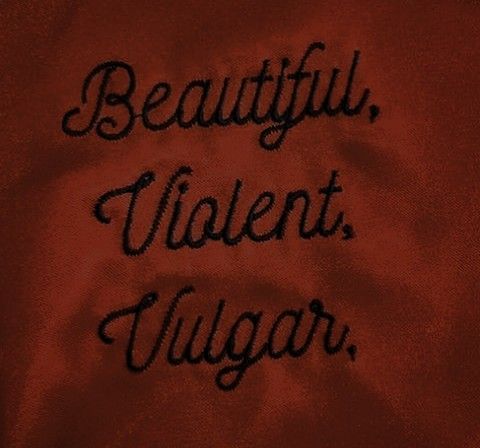
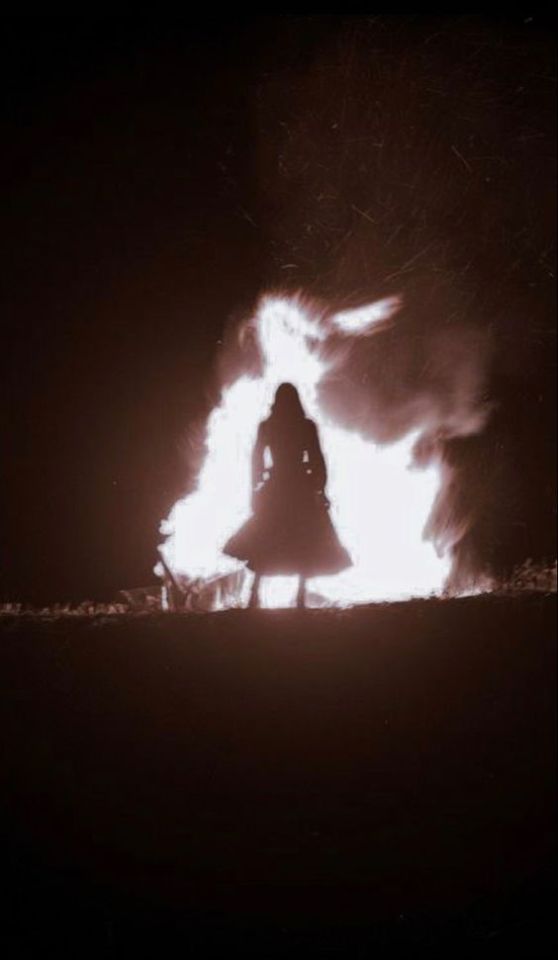
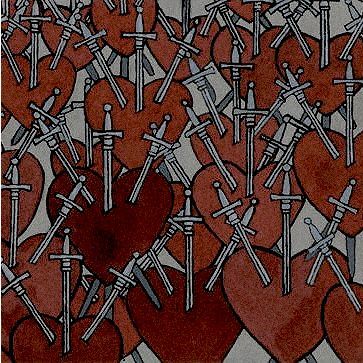
𝑨𝒔𝒕𝒓𝒐𝒍𝒐𝒈𝒚 𝑳𝒆𝒔𝒔𝒐𝒏𝒔!
𝐌𝐀𝐑𝐒
The next lesson is on Mars; this planet is known for what makes us tick, our passion, what makes us angry and how we express that anger. It also represents our desires and how we go about getting it. The sign of Mars reveals a lot about our basic animal nature; our instincts, sexuality and our drive.
First Lesson: Sun🌞
Second Lesson: Moon🌙
Third Lesson: Rising/Ascendant💫
Fourth Lesson: Venus
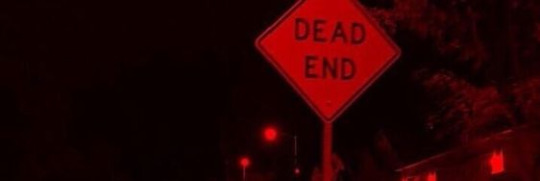
Mars is the planet of action, energy, and initiative. In a micro sense, it's your drive.
○ Zodiac sign Mars rules: Aries
○ Exalted in: Capricorn
○ House Mars rules: 1st House of Self
○ Mars retrogrades: Once every 2 years, each retrograde lasting around 10 weeks
○ Mars stays in each zodiac sign for: 6-7 weeks
○ Mars makes a complete trip through the zodiac: About every 2 years
○ Physical Energy: Athletics, Sex,
Mars represents these people:
Leaders, Athletes, Aggressive people
and these things:
Weapons, sharp or dangerous objects
Mars rules the Head.
All of us have Mars somewhere. If we do not respect him and give his energy an outlet, if we bottle up our anger and frustration, the energy will eventually force its way out in ways that are unconscious and potentially destructive.
A blocked or frustrated Mars can bring injury and illness to the physical body, aggressive persons, impatience, rudeness, hastiness, or inappropriate competitive urges. That is one reason why exercise of the physical body is so important to our physical and mental health.
If Mars is Retrograde
Mars retrograde turns Mars energy inward.
Bottled up anger, fighting, aggression, assertiveness, confidence, initiative. With Mars retro in your natal chart, Mars energy turns inward and you may accept aggression from others. You tend to internalize anger and be really hard on yourself.
You learned to swallow it all up in childhood, and you can unlearn it if you deal honestly with your past and turn towards the positive use of Mars.
𝐀𝐫𝐢𝐞𝐬 | 𝑇𝘩𝑒 𝑅𝑎𝑚
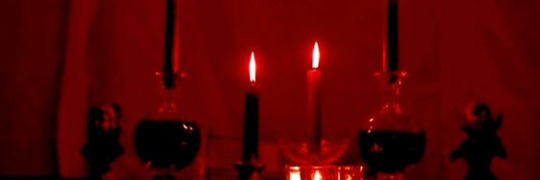
Weapon: Ram’s horns, head-butting
Mars is at home in the sign of Aries, meaning it can do what it does best: act! That is because it is the natural ruler of Aries, meaning it is at home or “domicile” in this zodiac sign.
People with this energy are unafraid to take action and often tend to be quite courageous.
However, that can also make them quite brash and impulsive — diving in first and thinking about it later. They will have a feisty temper and sex drive, easily ignited but then just as quickly dissipated once it has been released.
When it comes to sex, these individuals like to jump into the action, as their libido is especially high.
Despite Aries getting much of its reputation for feistiness from the god of war, Ares, your Mars sign is actually named after the ram in the Golden fleece mythology. Nonetheless, Mars is still Aries’s planetary ruler, and is super powerful in this sign!
Celebrities with this aspect:
Steve Jobs: Mars in Aries, Pisces Sun.
Stephen Hawking: Mars in Aries, Capricorn Sun.
Kate Hudson: Mars in Aries, Aries Sun.
Russell Crowe: Mars in Aries, Aries Sun.
Tyra Banks: Mars in Aries, Sagittarius Sun.
Bernie Sanders: Mars in Aries, Virgo Sun.
Joe Namath: Mars in Aries, Gemini Sun.
There is an obvious link between each of these people: Ambition.
𝐓𝐚𝐮𝐫𝐮𝐬 | 𝑇𝘩𝑒 𝐵𝑢𝑙𝑙
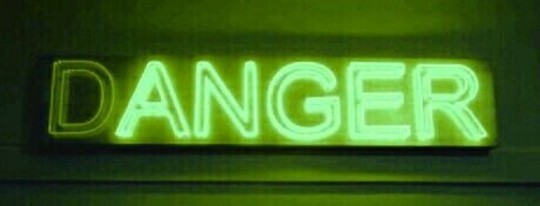
Weapon: Bull’s horns, bullheadedness, and brute strength
These individuals take action, pursue their goals and express their sex drive in a more refined and practical way.
People with this placement are slow and steady in tackling what they’re after — but once they set their minds upon it, there is nothing stopping them!
Usually slow to anger, their patience is also quite strong. However, once frustrated, they will dig in their heels and likely become quite stubborn and adamant about what they want.
“Slow and steady wins the race” could easily be a motto for Mars in Taurus. These goal-oriented people are not known for their speed, but their staying power is tremendous.
Generally calm and easygoing people, Mars in Taurus natives can have powerful tempers when they’re overly provoked. They generally don’t fly off the handle as quickly as others.
Celebrities with this aspect:
Madonna: Leo Sun, Mars in Taurus.
Lucy Lawless: Aries Sun, Mars in Taurus.
Muhammad Ali: Capricorn Sun, Mars in Taurus.
Kanye West: Gemini Sun, Mars in Taurus.
Stephen Colbert: Taurus Sun, Mars in Taurus.
John Fitzgerald Kennedy: Gemini Sun, Mars in Taurus.
There is an obvious link between each of these people: Authority/Power
𝐆𝐞𝐦𝐢𝐧𝐢 | 𝑇𝘩𝑒 𝑇𝑤𝑖𝑛𝑠
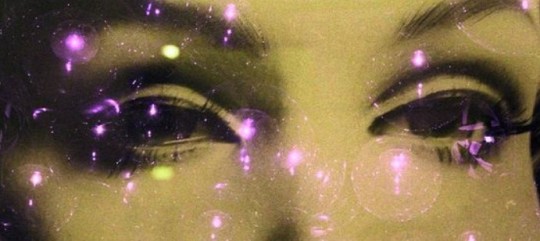
Weapon: Words, hands, and the mind
Individuals with this aspect are extremely focused on logic, discussion and connection.
When it comes to conflict, they will use their words and messages to punish or destroy.
People with this energy are often highly social and prefer spontaneity and adventure when it comes to their lives.
They tend to be fascinated by ideas and crave interaction or else they will become bored quite easily. These individuals have a high level of energy and enthusiasm for life and can communicate quite animatedly.
You’re quick on your feet, but your mouth moves even faster. If you don’t slow down every now and then, you’re also prone to cutting people with your words. Just because you can say it, doesn’t mean you should. Speaking carefully is important if you don’t want to hurt others unintentionally or have your own words used against you.
Celebrities with this aspect:
Martin Luther King: Mars in Gemini, Capricorn Sun
Chris Evans: Mars in Gemini, Gemini Sun
Uma Thurman: Mars in Gemini, Taurus Sun
Al Pacino: Mars in Gemini, Taurus Sun
Sandra Bullock: Mars in Gemini, Leo Sun
Meryl Streep: Mars in Gemini, Cancer Sun
There is an obvious link between each of these people: Charm
𝐂𝐚𝐧𝐜𝐞𝐫 | 𝑇𝘩𝑒 𝐶𝑟𝑎𝑏
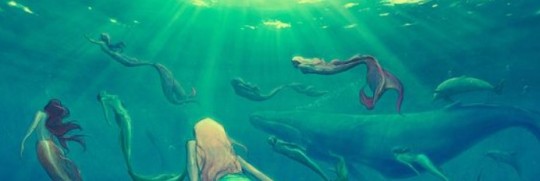
Weapon: Small but sharp crab pincers, protective shell
People with this placement are often extremely emotional individuals and become very fired up about everything they feel.
Emotional connection is a top priority and they often express the need to be a caretaker or nurture those around them.
However, when it comes to conflict, they will only use anger as a vehicle for their emotions if it is absolutely necessary, more likely to stew in their moods.
They can also be quite passive-aggressive.
Like the side-walking crab, you’re known for playing defense in a less direct manner. Like Mars in Taurus, Mars in Cancer expresses itself in a unique way, contrary to its planetary nature. When you respond to an argument or an invitation to bone, you come prepared, but it also hints that you may have a tendency to overthink things.
Celebrities with this aspect:
Cardi B: Mars in Cancer, Moon in Aries, Libra Sun
Steven King: Mars in Cancer, Moon in Sagittarius, Virgo Sun
RuPaul: Mars in Cancer, Moon in Scorpio, Scorpio Sun
Dolly Parton: Mars in Cancer, Moon in Virgo, Capricorn Sun
Keanu Reeves: Mars in Cancer, Moon in Cancer, Virgo Sun.
Miley Ray Cyrus: Mars in Cancer, Moon in Scorpio, Sagittarius Sun.
Robin Williams: Mars in Cancer, Moon in Pisces, Cancer Sun.
There is an obvious link between each of these people: Memorable
𝐋𝐞𝐨 | 𝑇𝘩𝑒 𝐿𝑖𝑜𝑛

Weapon: Teeth
Mars in Leo gives someone the energy to be the star of the show — eager to express themselves, entertain and achieve everything they’re passionate about.
They are charismatic and driven and aim high both personally and professionally.
Living a fulfilling life is a top priority for them, as they struggle with following a path that doesn’t give them the freedom to follow their dreams.
In conflict, these people can be quite fierce, unleashing a fit of rage — especially if their sense of ego has been offended.
No one wants to mess with a lion, so you’re quite proud to have Mars in Leo! Your roar is loud—and your bite is hard, too. You command respect and have a regal air about you. You almost have to laugh when someone picks a fight with you because it’s unbelievable that someone would imagine confronting you! In the wild, lions commonly strangulate prey by crushing their airways with their teeth/jaw force…you do this by stealing the spotlight from your nemeses. Just like lions that hunt in prides, you possess social influence and know how to sway people in the direction you want, particularly to turn on those who have wronged you and others.
Celebrities with this aspect:
Beyonce Knowles: Virgo with Mars in Leo
Michael Jackson: Virgo with Mars in Leo
George Clooney: Taurus with Mars in Leo
Paul McCartney: Gemini with Mars in Leo
Sting: Libra with Mars in Leo
Robert Redford: Leo with Mars in Leo
There is an obvious link between each of these people: Star-Power
𝐕𝐢𝐫𝐠𝐨 | 𝑇𝘩𝑒 𝑀𝑎𝑖𝑑𝑒𝑛
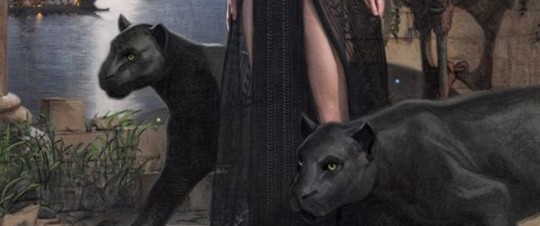
Weapon: Holier than thou, will condemn you
Mars in Virgo grants someone a strong work ethic and a goal-oriented nature. They tend to be highly analytical and able to manage many projects and people at once.
These individuals are excellent planners and organizers and favour productivity above all else.
They also are often highly communicative and practice restraint and practicality in life. This also applies to how they exhibit anger or their sexuality: with logic, balance and intellectualism.
With an eye for detail, you’re also talented at finding weak spots, flaws, and holes in arguments—and asking considerate questions is one of the ways you catch your opponents off guard and break through their defense.
However, when frustrated, they will become highly critical and can exhibit perfectionism. People with this placement can be very service-oriented, eager to aid others and please. When it comes to sex, they are often slower to interact and prefer sensuality and relaxation over intense or short fits of passion.
Celebrities with this aspect:
Barack Obama: Mars in Virgo, Sun and Mercury in Leo.
Diana, Princess of Wales: Mars in Virgo, Sun and Mercury in Cancer.
Gordon Ramsay: Mars in Virgo, Mercury in Sagittarius, Sun in Scorpio.
Mother Teresa: Mars in Virgo, Sun and Mercury in Virgo.
Will Smith: Mars in Virgo, Sun and Mercury in Libra
Britney Spears: Mars in Virgo, Sun and Mercury in Sagittarius
Robert John Downey: Mars in Virgo, Sun and Mercury in Aries
There is an obvious link between each of these people: Influential
𝐋𝐢𝐛𝐫𝐚 | 𝑇𝘩𝑒 𝑆𝑐𝑎𝑙𝑒𝑠

Weapon: Kills you with kindness, the pen, and contracts
These people favour harmony, peace, fairness and justice over personal victory.
They may also be especially passionate about partnerships and always have a key person they’re working with or aligned with.
Mars in Libra likes to be seen as a jovial and fun person, so they avoid situations or relationships that are intense.
They want to live a life of peace and harmony, nothing can come between them and tranquillity.
Still, they always play innocent when they are challenged, and can generally charm the birds out of the trees to win your favor.
Passive-aggressiveness is practically the hallmark of this position.
Mars in Libra people are adept at predicting when problems and discord will occur well in advance. They know how to compromise and are excellent at conflict management. They don’t want to look like they are ever being mean or unfair, but aggression has to go somewhere! Too often, this results in sneaky behavior and subterfuge.
Celebrities with this aspect:
Abraham Lincoln: Mars in Libra, Venus in Aries, Sun in Aquarius.
Nelson Mandela: Mars in Libra, Venus in Gemini, Sun in Cancer.
Bill Clinton: Mars in Libra, Venus in Libra, Sun in Leo.
Bill Gates: Mars in Libra, Venus in Scorpio, Sun in Scorpio.
John Lennon: Mars in Libra, Venus in Virgo, Sun in Libra
J. K. Rowling: Mars in Libra, Venus in Virgo, Sun in Leo
There is an obvious link between each of these people: Innovative
𝐒𝐜𝐨𝐫𝐩𝐢𝐨 | 𝑇𝘩𝑒 𝑆𝑐𝑜𝑟𝑝𝑖𝑜𝑛
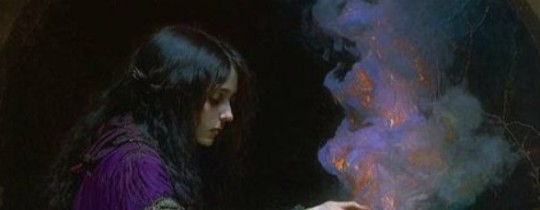
Weapon: Stinger, poison, secrecy
In this sign, Mars isn't motivated to compromise or even consider what anyone else has to say. Mars in Scorpio gives us the gift of the ultimate cosmic backbone, causing us to feel totally in charge of our actions.
This placement gives someone a cunning and intense nature. Once they set their minds on something and desire it, they will stop at nothing to get it.
You’re very calculating and often eight steps ahead of everyone else, making sure that all bases are covered before others have the chance to make a move!
Intuition and focus grant you talent in uncovering and addressing every weak spot your opponent possesses, so you’re keen on taking your time to make the right move.
Psychological warfare is your game, and no one plays it better than you. As someone who is highly empathetic, you know how to get under someone’s skin, but you also know what to do to make someone desire you. Instead of taking information at face value, you rely on sharp psychic senses to suss out insecurities, weak spots, and hidden desires, and then weaponize them or use them to seduce others.
Celebrities with this aspect:
Liam Neeson: Sun in Gemini, Scorpio Mars
Shailene Woodley: Sun in Scorpio, Scorpio Mars
Jennifer Connolley: Sun in Sagittarius, Scorpio Mars
Charles Dance: Sun in Libra, Scorpio Mars
Joaquin Phoenix: Sun in Scorpio, Scorpio Mars
Morgan Freeman: Sun in Gemini, Scorpio Mars
There is an obvious link between each of these people: Intensity
𝐒𝐚𝐠𝐢𝐭𝐭𝐚𝐫𝐢𝐮𝐬 | 𝑇𝘩𝑒 𝐴𝑟𝑐𝘩𝑒𝑟
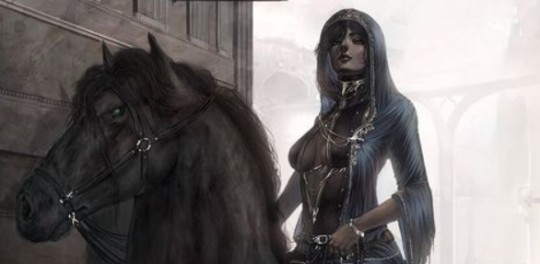
Weapon: Bow and arrow
Mars in Sagittarius people are born adventurers and sojourners. They hunger to experience everything that life has to offer and above all do not like being caged.
They have a “go big or go home” mentality and hunger for change and spontaneity wherever they turn.
They can often become quite bored if they are in the same physical or mental place for too long, so they need a constant supply of stimulation and interaction to keep them busy.
That restless nature provokes them to seek new ideas, experiences and opportunities that will satiate their wanderlust and pursuit of knowledge.
As a Mars in Sagittarius native, your fiery temperament makes you both a passionate lover and fighter. If there were one word to describe your Mars sign, it would be “loud.” There’s usually an air of drama about you when you get upset and you’re not one to hold back.
Celebrities with this aspect:
Jennifer Lopez: Leo Sun, Mars in Sagittarius.
Vladimir Putin: Libra Sun, Mars in Sagittarius.
Prince Harry: Virgo Sun, Mars in Sagittarius.
Kendall Jenner: Scorpio Sun, Mars in Sagittarius.
Christopher Reeve: Libra Sun, Mars in Sagittarius
There is an obvious link between each of these people: Opportunistic
𝐂𝐚𝐩𝐫𝐢𝐜𝐨𝐫𝐧 | 𝑇𝘩𝑒 𝑆𝑒𝑎𝑔𝑜𝑎𝑡

Weapon: Will end your career
The ambitious, strategic and driven energies of Mars can be focused in a harnessed and patient way. These individuals tend to be quite hardworking and are always after the long game, unafraid to put in the effort because of their innate desire for victory.
When it comes to conflict, these people are cunning and practical, understanding that drama is a waste of energy unless they are coming out on top.
They will often refocus their passion and emotions back into their goals or career.
With fiery Mars in the more orderly sign of Capricorn, natives with this position have a subdued and controlled style of approaching life. Most don’t come across as particularly enthusiastic; rather, theirs is a low-key but determined energy.
Celebrities with this aspect:
Lady Gaga: Aries Sun, Capricorn Mars
David Tennant: Aries Sun, Capricorn Mars
Florence Pugh: Capricorn Sun, Capricorn Mars
Olivia Cooke: Capricorn Sun, Capricorn Mars
Emmy Rossum: Virgo Sun, Capricorn Mars
Alfie Allens: Virgo Sun, Capricorn Mars
There is an obvious link between each of these people: Intimidating
𝐀𝐪𝐮𝐚𝐫𝐢𝐮𝐬 | 𝑇𝘩𝑒 𝑊𝑎𝑡𝑒𝑟-𝐵𝑒𝑎𝑟𝑒𝑟
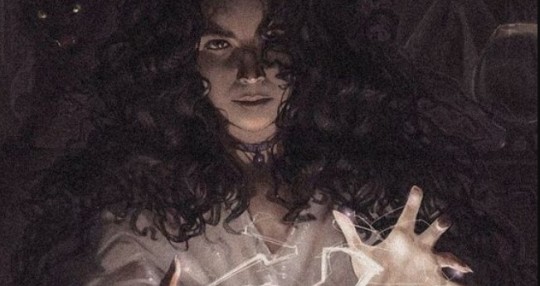
Weapon: Isolation
Mars in Aquarius grants someone a quirky and eccentric air in regards to how they exhibit their energy. They often are highly idealistic and intellectual and put their passion into their goals and group interactions.
They have a progressive nature and tend to be quite social and highly communicative.
Aquarius never cares about fitting in, yet this sign is always in the cool kids club.
With Mars in Aquarius, you may exclude people when you go on attack—you know that rejection stings! Aquarius is a rebellious sign, so having natal Mars here also means you don’t care to follow the rules.
Battling with you can be intimidating to people because your judgement doesn’t tend to get clouded by overwhelming emotions. You’re not a robot, but your ability to remain objective during an argument can frustrate others and translate into a lack of passion. But you’re not dispassionate; you’re passionately independent, challenging others to think for themselves. The secret is that you might also act detached because you know it presses people’s buttons, giving you an upper hand in certain situations.
Celebrities with this aspect:
Emilia Clarke: Libra Sun, Aquarius Mars
Scarlet Johansson: Sag Sun, Aquarius Mars
Charlie Cox: Sag Sun, Aquarius Mars
Rosamund Pike: Aquarius Sun, Aquarius Mars
Christopher Walken: Aries Sun, Aquarius Mars
There is an obvious link between each of these people: Unique
𝐏𝐢𝐬𝐜𝐞𝐬 | 𝑇𝘩𝑒 𝐹𝑖𝑠𝘩
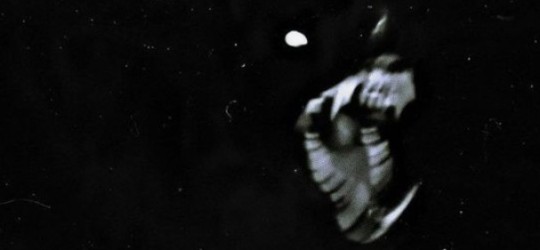
Weapon: Love
Mars in Pisces brings an individual an emotional and sensitive nature. They tend to be more fluid individuals who become passionate about their feelings and lead with their hearts.
Their ideals and dreams are of great importance to them, and they trust their intuition and empathy over their minds when pursuing goals or sex.
They also will tend to be quite creative and romantic people, eager to express themselves and connect.
Your strength is less about divisiveness and more about flexibility and raw emotional power.
Water is reflective, and having Mars in this sign makes you empathetic and compassionate.
You intuit what competitors and opponents are feeling, but you don’t necessarily weaponize that information.
Emotion and sensitivity aren’t a weakness, especially when you have Mars in Pisces. Similar to the other watery Mars signs, you’re driven to fight for who and what you care about, but you need to be mindful about when you play the role of the martyr.
Celebrities with this aspect:
Marilyn Monroe: Mars in Pisces, Sun in Gemini.
Heath Ledger: Mars in Pisces, Sun in Aries.
Elizabeth Taylor: Mars in Pisces, Sun in Pisces.
Denzel Washington: Mars in Pisces, Sun in Capricorn.
Tom Hanks: Mars in Pisces, Sun in Cancer.
Tina Turner: Mars in Pisces, Sun in Sagittarius.
There is an obvious link between each of these people: Expressive
#witchthewriter#astrology#zodiac#mars#mars aspect#mars planet#mars zodiac#zodiac lessons#astrology lessons#aesthetic#pisces#aquarius#capricorn#sagittarius#scorpio#libra#gemini#virgo#taurus#leo#aries#cancer#astro posts#astro chart#astro community#astro notes#astro placements#astro observations#astrology blog#astrology houses
393 notes
·
View notes
Text
Writers Against the War on Gaza (WAWOG) is an ad hoc coalition committed to solidarity and the horizon of liberation for the Palestinian people. Drawing together writers, editors, and other culture workers, WAWOG hopes to provide ongoing infrastructure for cultural organizing in response to the war. This project is modeled on American Writers Against the War in Vietnam, an organization founded in 1965.
Statement of Solidarity
October 26, 2023
Israel’s war against Gaza is an attempt to conduct genocide against the Palestinian people. This war did not begin on October 7th. However, in the last 19 days, the Israeli military has killed over 6,500 Palestinians, including more than 2,500 children, and wounded over 17,000. Gaza is the world’s largest open-air prison: its 2 million residents—a majority of whom are refugees, descendants of those whose land was stolen in 1948—have been deprived of basic human rights since the blockade in 2006. We share the assertions of human rights groups, scholars, and, above all, everyday Palestinians: Israel is an apartheid state, designed to privilege Jewish citizens at the expense of Palestinians, heedless of the many Jewish people, both in Israel and across the diaspora, who oppose their own conscription in an ethno-nationalist project.
We come together as writers, journalists, academics, artists, and other culture workers to express our solidarity with the people of Palestine. We stand with their anticolonial struggle for freedom and for self-determination, and with their right to resist occupation. We stand firmly by Gaza’s people, victims of a genocidal war the United States government continues to fund and arm with military aid—a crisis compounded by the illegal settlement and dispossession of the West Bank and the subjugation of Palestinians within the state of Israel.
We stand in opposition to the silencing of dissent and to racist and revisionist media cycles, further perpetuated by Israel’s attempts to bar reporting in Gaza, where journalists have been both denied entry and targeted by Israeli forces. At least 24 journalists in Gaza have now been killed. Internationally, writers and cultural workers have faced severe harassment, workplace retribution, and job loss for expressing solidarity with Palestine, whether by stating facts about their continued occupation, or for amplifying the voices of others. These are instances that mark severe incursions against supposed speech protections. Specious charges of antisemitism are leveled against Zionism’s critics; political repression has been particularly aggressive against the free speech of Muslim, Arab, and Black people living in the US and across the globe. As was the case following the September 11th attacks, Islamophobic political fervor and the widespread circulation of unsubstantiated claims has galvanized a US-led coalition of military support for a brutal campaign of violence.
What can we do to intervene against Israel’s eliminationist assault on the Palestinian people? Words alone cannot stop the onslaught of devastation of Palestinian homes and lives, backed shamelessly and without hesitation by the entire axis of Western power. At the same time, we must reckon with the role words and images play in the war on Gaza and the ferocious support they have engendered: Israel’s defense minister announced the siege as a fight against “human animals”; even as we learned that Israel had rained bombs down on densely populated urban neighborhoods and deployed white phosphorus in Gaza City, the New York Times editorial board wrote that “what Israel is fighting to defend is a society that values human life and the rule of law”; establishment media outlets continue to describe Hamas’s attack on Israel as “unprovoked.” Writers Against the War on Gaza rejects this perversion of meaning, wherein a nuclear state can declare itself a victim in perpetuity while openly enacting genocide. We condemn those in our industries who continue to enable apartheid and genocide. We cannot write a free Palestine into existence, buttogether we must do all we possibly can to reject narratives that soothe Western complicity in ethnic cleansing.
We act alongside other writers, scholars, and artists who have expressed solidarity with the Palestinian cause, drawing inspiration from the Palestinian spirit of sumud, steadfastness, and resistance. Since 2004, the Palestinian Campaign for the Academic and Cultural Boycott of Israel (PACBI) has advocated for organizations to join a boycott of institutions representing the Israeli state or cultural institutions complicit with its apartheid regime. We call on all our colleagues working in cultural institutions to endorse that boycott. And we invite writers, editors, journalists, scholars, artists, musicians, actors, and anyone in creative and academic work to sign this statement. Join us in building a new cultural front for a free Palestine.
Signed,
WAWOG Interim Organizing Committee
Hannah Black
Ari Brostoff (Senior Editor, Jewish Currents)
Elena Comay del Junco
Kyle Dacuyan (Executive Director, Poetry Project)
Kay Gabriel (Editorial Director, Poetry Project)
Kaleem Hawa
E. Tammy Kim
Shiv Kotecha
Wendy Lotterman (Associate Editor, Parapraxis)
Muna Mire
Perwana Nazif
Brendan O'Connor
Alex Press (Staff Writer, Jacobin)
Sarah Nicole Prickett
Dylan Saba
Zoé Samudzi (Associate Editor, Parapraxis)
Jasmine Sanders
Claire Schwartz (Culture Editor, Jewish Currents)
Janique Vigier
Harron Walker
Chloe Watlington
Gabriel Winant (Department of History, University of Chicago)
Audrey Wollen
Hannah Zeavin (Founding Editor, Parapraxis)
Signed, In Solidarity
Fatimah Warner (Noname)
Saul Williams
Susan Sarandon
Janeane Garofalo
Gael García Bernal
Danez Smith
Ocean Vuong
Aria Aber
Saidiya Hartman
China Miéville
+ full list here
#writers against the war on gaza#wawog#free palestine#this letter is the one#you know how i encountered this when you see one of the people who signed#text#noname#susan sarandon#saul williams#gael garcia bernal#ocean vuong#joel kim booster#what a pleasant surprise#patti harrison#fariha roisin#zoe samudzi
237 notes
·
View notes
Text
Calm/Hobby: May 7 & 8 Prompts from @calaisreno
As his Air Baltic flight from Oslo begins its descent into Tallinn, Sherlock stares distractedly out the window at the thinning layer of clouds, and pushes back at the whisper of bleakness that it it is the Estonian coastline coming into view, not the South East shores of England. He girds himself with stoicism as he feels a tendril of melancholy begin to unfurl at the fact that Sherlock Holmes no longer exists, now that Herr Lukas Sigerson has taken his place.
He knows that this new identity will only be the first of many.
Sigerson has brown eyes, and wears dark brown tortoiseshell glasses; his dark hair is beginning to have a salt and pepper cast to it, his lower face is covered by stubble. His loose-limbed gait is relaxed, and there's a remnant of a tendency to stutter when he speaks. Hidden from view are the still-healing cracked ribs on the right side of his torso, the damaged ligaments of his right knee, and the fact that the ossicular chain within his right ear bears traces of having been successfully reconstructed, the surgical repair restoring the hearing he had lost after the trauma to his skull.
When Sherlock had been ready to leave the UK to begin to grapple with Moriarty’s extant remains -- the people and infrastructure and schemes dispersed across the globe -- it had been hard to determine what to do first and where and why. Of the three assassins in London on the day of his fall, the one assigned to Mrs. Hudson – a thuggish fellow more noteworthy for his brawn than any brains – had been rolled up by Mycroft’s people even before Sherlock had been delivered to the morgue. The one assigned to Lestrade had been somewhat harder to ferret out, but as Sherlock began piecing together what details he could collect during his recuperation, he had determined that he was a functionary who had infiltrated the Met – and the resolution of that criminal had also been left to Mycroftian minions.
But John’s sniper was of a different cast altogether, an experienced professional who had made no mistakes and vanished like vapor. Sherlock believed that individual had been more than a freelance hire -– Mrs. Hudson and Lestrade had been brought into the mix of those in danger of losing their lives because every action of Moriarty’s was as theatrical and excessive as it was insane: ransoming John’s life had always been the true motive. John’s sniper would have been especially close to Moriarty, and likely a member of the upper echelon of his criminal syndicate. Sherlock suspected that acquiring the information that would allow him to destroy this person was going to be an exceedingly difficult proposition.
He needed information, and Sherlock had finally decided that the place to begin was with Estonia, the tiny nation that had regained its independence from Soviet occupation in 1991, and that had chosen to bypass the encumbering drag of the impoverished infrastructure bequeathed from the Soviets, by abandoning it. Estonia had instead risked its future by constructing an economy based on the latest digital technologies, leapfrogging more advanced nations as it became a cyber-powered incubator of innovation, and one of the most wired countries in the world. Sherlock had no doubt that Moriarty would have been intent on turning this transformation to his own advantage; he would have found the opportunity irresistible.
Moriarty’s claim to have a code that could take over any computer was false, but even so Sherlock suspected that this fabulation pointed at something all too real: investments by Moriarity in the dark web, and in the recruitment of cadres of hackers to be manipulated into hijacking computer networks. In April and May of 2007, Estonia had been besieged for three weeks by waves of cyberattacks that had crippled its digital public and private sectors, from government entities such as the foreign and defense ministries, to banks, corporate enterprises, and media outlets. Estonia had traced the attacks to actors within Moldova’s breakaway state of Transnistria, a long narrow geographic entity bordering Ukraine that displayed the Soviet Communist hammer-and-sickle on its flag and coat of arms. Sherlock suspected that these cyberterrorist actors were performing roles under Moriarty’s direction, and that he would find information from within Estonia that would point to the far-flung nodes of his enemy’s wretched empire.
With their impending arrival in Tallinn, the melancholy that had emerged begins to become more deeply rooted, and Sherlock’s mind's eye paints pictures of what lies in the deep of the sea passage below, and across the sea miles beyond Britain’s and Europe’s contours – fragments of exploded ordnance littering the ocean floor, where bodies entombed in submarines and battleships are testament to the destructive capabilities of bands of people bent on glory and riches and domination.
His meandering thoughts catch hold of a memory in the viewing room of his mind palace, the one that records the evenings when John had chosen a film to share as they sat propped up together on the sofa in the darkness. It focused on the US Army Air Force unit that flew missions from East Anglia in World War II, and the appointment of a new commanding officer tasked with reversing the underperformance of the bombing teams.
He had been riveted by the harsh speech the uncompromising commander delivers to the group of pilots, who simmer with resentment at his theory that part of their problems lie with their playing it safe. He tells them that while fear is to be expected, the only choice they have is to stop worrying about the fear, and about themselves. He can still feel the chill of premonition when he heard the figure on the screen bite out his message: “We’re in a war – a shooting war. We’ve got to fight. And some of us have got to die."
But it was the follow-on command that is engraved in his mind beyond the memory palace, visible in the shadow of all else he is thinking about: "Stop making plans. Forget about going home. Consider yourselves already dead. After that, it won’t be so tough.” And so, too, was his bombing run a flight into the unknown, against unseen enemies, the actions of a self-created ghost who must reckon that he truly inhabits the underworld from this point on.
Sherlock closes his eyes and continues work on the new spaces that he has been constructing in his mind palace, an effort that never fails to bring him calm, even when other emotions are in play. These new rooms are cloisters and refectories based on the architecture of a thirteenth-century monastery, in deference to Tallinn’s remarkable preservation of the medieval city within its precincts, and he has reserved this adjacent building for whatever part Eastern Europe will play in his sojourns. It is complicated artistry, and he is the last one to rise and exit the airplane.
As Herr Sigerson makes his way toward the front of the compact airport, he adjusts the rucksack on his shoulder, and tugs the bottom of his jumper to straighten it. As a standard issue Norwegian, he is, of course, kitted out in knitted wool, although the garment he wears is only a single hue; the vividly colored patterns favored by so many of the inhabitants of his improvised homeland hurt both his eyesight and his sense of fashion. Sherlock smiles at the thought that John would be amused, were he to see his couture, and consider it revenge for Sherlock’s hobby of “inadvertently” wreaking havoc on the least attractive of John’s jumpers.
Sherlock's half-zip pullover is a dark navy blue with a beautiful sheen, and it is not completely devoid of decoration – it is just that the design is woven into the single color, slightly raised, subdued in its visibility. On the back is the Norse symbol of the vegvisir, which was said to allow its possessor to always find the right path, no matter how turbulent the environment might be. Next to the wayfinding icon is a letter from the ancient runic alphabet said to summon good luck. No doubt John would also be amused at the fact that his relentlessly rational friend is carrying these mystical totems on his body. Although, perhaps not, were he to know of the future toward which Sherlock has now committed himself.
........................................................
@calaisreno @totallysilvergirl @friday411 @peanitbear @original-welovethebeekeeper
rest of the @s in the tags, which will work for communication purposes, I hope? just say the word if you want to be untagged or tagged xoxoxo
57 notes
·
View notes
Note
Why do I keep disappearing into fantasies and stories about fictional characters? When will I become happy and stop reading them to feel at least a drop of warm emotions?
Perhaps the life you’re in now isn’t fulfilling and stimulating enough? Maybe it’s better in your head.
When I was my most depressed I always stayed in my head. If I wasn’t asleep I was far away in my mind doing anything other than addressing the reality I was physically in.
There are signs here on the river banks warning people to stay away when it rains. Because even though you feel safe on the grass, it’ll become slippery and you can slide into the raging waters of the river and drown.
Fantasy can be like that for us who are lacking things in life. We’re on the grass, a safe distance from the depressive and consuming currents. But we’re just a shifting weight from falling down the hill.
From my personal experience, I had to fake those warm emotions in myself before I could even try to find it elsewhere or even actually make it myself. Before I could escape the allure of fantasy.
If I’m going to spend all day in my room then I made it feel like somewhere worth being in. If I’m going to be alone I want to enjoy my company, so I took time to try and dress like someone I’d be happy to pretend to be. Whether it meant trying harder to accessorize or just meant washing my hair that day and brushing my teeth. I made up things to be happy with, I romanticized the otherwise unappreciated things. I’d take myself to the beach or on long walks in safe places. Id get a hot chocolate and hold it with both hands and feel that warmth until it faded. Id microwave it so many times to get it back to temperature, even in the Florida summers.
I needed distractions so I’d ride a cheap thrift bicycle I got for 10$ for hours. I painted. I did these things and still daydreamed and fantasized about other places I could exist in, but slowly found myself proud of the strength in my legs and the skills I was making while I was still in my head.
But that’s what it’s about, right? Distractions and making up what you don’t already have but really want. Excitement, love, sex, power, allure.
Maybe you need a distraction of a different form? Maybe it would help to distract your body while your mind is away and maybe you’ll like this reality more and find your brain making better chemicals. Maybe it’ll lead to meeting people with similar distractions who fulfill you more than your fictional darlings. Maybe you’ll just enjoy being here more, in this world.
Sometimes that doesn’t help. Sometimes we need different help. I have OCD and take medicine to manage it, because my brain needs the extra help.
Maybe your life needs more outlets for that creativity in your head.
I could be totally off base and entirely misunderstanding what you mean, so forgive me if I just went off in a useless tangent. Maybe I don’t understand all, in which case, I am sorry.
I hope you have the resources, will, and energy to find ways to get what’s missing and get those warm emotions in this reality.
I hope you’re on the river bank still, and not already sliding down the wet grass.
(Sending long distance hugs, warm and sweaty)
50 notes
·
View notes